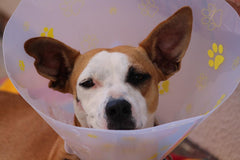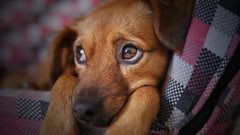
If you didn't know that curly-haired cats exist, you've been missing out! These adorable bundles of fur are some of the cutest pets around. The curly hair makes them look a little like a poodle, which has earned these cats the nickname "poodle cat."
However, as you might have guessed, these pets are in high demand, and they're also relatively low in supply. If you want to care for a curly-haired cat, here's what you need to know!
Curly-Haired Cat Background

Before getting into how to get one of these cats, it's essential to understand their background. As you likely know, cats don't usually have curly hair. Indeed, all breeds normally and naturally have straight fur.
However, it turns out that there is a genetic quirk that can make a curly fur cat. Some cats had this quirk in the past, but none were as easy to breed as the Selkirk Rex. That breed didn't happen until 1987 when it became much more straightforward for someone to acquire and produce curly-haired kittens.
Agnes DiPesto was born to a feral cat in Montana. This fluke gene mutation meant that this cat had curly hair - the only one, in fact, of the litter. A Persian cat breeder adopted it and named it after Agnes DiPesto, a character on the TV series, Moonlighting.
Also, by pure chance, this genetic mutation is dominant. Any cats that came from DiPesto also had their mother's signature curly fur. Therefore, once the breeder discovered the one cat with this, it was easy to make many more similar cats.
Today, every Selkirk Rex (one breed of curly-haired cat) can trace its genetic origins back to DiPesto.
What Types of Curly-Haired Cats Are There?

There are four different types of curly-haired cats: Selkirk Rex, Cornish Rex, Devon Rex, and LaPerm. All of these are considered rare and exotic.
The above story talks about the Selkirk Rex history, but the three other cats pre-date the Selkirk Rex.
The Cornish Rex is the first curly-hair cat that turned into a successful breed. Introduced in the 1950s, this breed has recessive genes. This trait means that both the mother and the father must have curly-haired features for their kittens to have curly hair. The curls on the Cornish Rex are due to missing guard hairs. They're soft pets because of it, but having part of their fur coat absent can be problematic, depending on the circumstances.
The Devon Rex is similar to the Cornish Rex, although the two breeds look nothing alike. Like the Cornish Rex, the Devon breed has a recessive gene. The first of this breed was born in 1960. The Devon Rex looks unique. Surprisingly, these are not cats with curled ears, given how large they are. Somehow they sit up straight on the Devon Rex's head!
Finally, there's also LaPerm. Despite it not having the Rex moniker, this cat breed is very much curly-haired. It even pre-dates the Selkirk Rex, having first been born in Oregon in 1982. This gene was the first to be dominant, but, unlike the Selkirk Rex, this breed still lacks some fur, which gives the coat that does grow in a curly appearance.
The Selkirk Rex was the first widespread curly-haired cat because the curly hair comes from a dominant gene, and it had a full coat of fur, complete with the three types of hair that all other cats have!
How Can I Get One?

If you want a curly-haired cat, you should know that these are often challenging to find and adopt from shelters. There might only be a few up for adoption at any given point in time across the entire United States.
Therefore, the best way (usually) to get a Selkirk Rex is to go to a reputable breeder. These cats are quite expensive, though. Most of the time, they will cost up to $1,500.
The other three cat types - Devon Rex, Cornish Rex, and LaPerm - also cost about the same level of money. Usually, these three are slightly less expensive but not by much. If you're planning on picking up a curly-haired cat, expect to pay somewhere between $1,000 and $1,500.
Curly-Haired Cats Are Amongst the Most Adorable Around

There's no denying how cute and perfect curly-haired cats are. All cats are! These pets are some of the best around because of their unique appearance. Moreover, all four of these types of cats have a fun, friendly, outgoing personality. These are all excellent breeds to have, both in terms of temperament and enjoyment!
Of course, if you are thinking of getting one of these cats, please check your local adoption shelters first.
While it is unlikely that they would have one of these pets, it's not impossible either. And, adopting a cat has two benefits: it's cheaper for you, and it gives a deserving pet a second chance at a loving home.
If you have to go to a breeder, please make sure you do some research online and pick a breeder that has a positive reputation!




